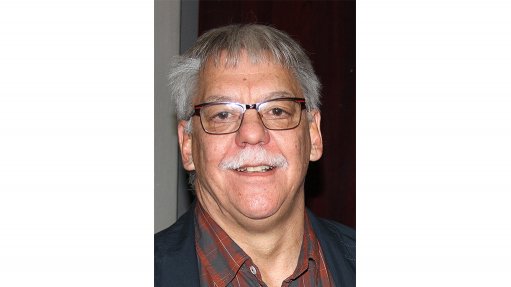
There is widespread ignorance among quantity surveyors, and apathy and resistance from building owners and developers, about Life Cycle Costing - a concept that will become increasingly important as the Green Building revolution sweeps the world.
This cautionary message was spelt out by Dr Hoffie Cruywagen, of the University of Pretoria's Department of Construction Economics, in his address to the annual congress of the Association of SA Quantity Surveyors held in Midrand recently.
Dr Cruywagen told congress delegates that Life Cycle Costing (LCC) is the total costs of an asset over its entire operating life, including initial acquisition costs, subsequent running expenses, and demolition costs. He said that traditionally the choice between building elements were based on the comparison of initial costs which was then regarded as the single most important costing factor. However, in the 1980s it was found that running costs over the long term outweighed initial capital costs.
"LCC has now also become even more important as clients implementing sustainable practices into building projects need to know the total cost of the project and require total lifespan costs right at the start of a project," he stated. Despite this growing need for LCC, a recent survey conducted by the UP Department of Construction Economics revealed that over 90% of SA quantity surveyors had no knowledge of LCC, did not apply it, thought it applied only to Green Building projects which they did not specialise in, or simply felt they did not have enough time to become involved in LCC. Furthermore, the responding QSs indicated that their clients were not only apathetic about LCC but often opposed to it because they were obsessed about returns on investment and apprehensive that the QS fee to do LCC would be prohibitive.
"The lack of a standard method to apply for LCC in South Africa is undoubtedly a major stumbling block - standard documentation for LCC exists overseas in countries such as the UK, Australia, New Zealand and Europe. ASAQS is now in the process of producing a guide on LCC and hopefully this will improve the situation in South Africa. But QSs should make a point of becoming more committed to LCC and take responsibility for educating clients about LCC, and the importance of implementing it as early in the design process as possible," Dr Cruywagen urged.
Other speakers at theASAQS congress which this year had "Running with Horses - Finding the Leading Edge" as theme, included:
- Dr Stephan Ramabodu, president of ASAQS, who said that excessive discounting of fees by quantity surveyors coupled with dropping service standards were harming the reputation of the QS profession. He called on more young people - including young women - of all races to become qualified quantity surveyors;
- Dr Clem Sunter, Scenario Strategist, who highlighted the 'warning flags' affecting global economic prosperity. These included the effects of religious beliefs, growing tension between the USA and Russia, the world's ageing population, and the growing inequality between the super-rich and the poor, as well as the need for the creation of more small business enterprises;
- Prof Nick Binedell of the Gordon Institute of Business Science, who spelt out the need for strategic leadership and pre-emptive thinking, and accelerated change in SA. "A child in Umtata must have the same chance of business success as one in Sandton," he told the congress;
- Dr Kevin Kemm, nuclear physicist and CEO of Nuclear Africa, who urged quantity surveyors to become more involved in the new build opportunities presented by the growing number of nuclear power stations planned for SA's coastal regions;
- Venete Klein, former Executive Director of ABSA Retail Bank, who lamented the lack of sound leadership not only in government but also in business and other spheres of life and offered some tried and tested principles in leadership as a way forward; and
- Danie Hoffman, of the University of Pretoria's Department of Construction Economics, who spoke about the findings of an ASAQS study into the true cost of Green Building.